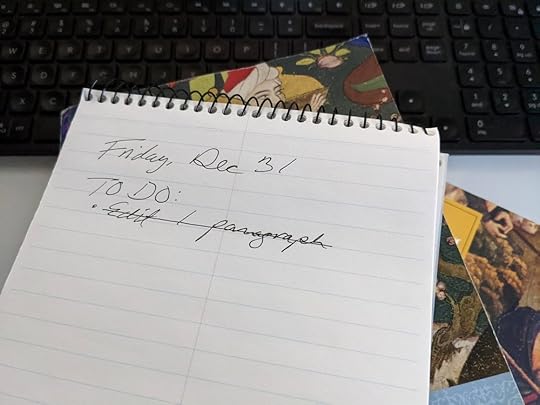When trauma blocks creativity
It was 6 p.m. on New Year’s Eve.
The citizens of earth were eagerly preparing to leave 2021 behind, and some had already started. At the Burj Khalifa in Dubai, lights, music, fireworks, and fountains set an optimistic tone for the crowds of revelers below. The Sydney Harbor Bridge blossomed with light and color as millions of residents in the chilly northern hemisphere watched on TV and computer screens. My son and my husband were eating fish and chips in the kitchen and discussing video games. And I was hiding in my room, crying on the floor, trying to understand why I couldn’t seem to move past the disastrous Christmas that I had spent with my parents a few days earlier.
I’ll spare you the details of what happened. The devastating rift that opened that weekend was emblematic of the entire year we were leaving behind. Everything felt broken. Every last drop of hope and happiness had frozen over. I lay on the floor and felt myself flattening beneath the weight of the hopelessness and despair of billions of people.
I wish I didn’t get like this, but sometimes I do. Depression nipped at my heels, breaking through my protective wall of medication, pulling me down, and dragging every ounce of creativity and motivation with it.
Although I had written the first draft almost a year earlier, my 3rd book was coming along painfully and my deadline to get it to my editor was rushing closer. Alone in my room, depression reminded me that I was not going to finish the manuscript in time, while it also played out my entire Christmas weekend on repeat. Lazy, my mind whispered. You’re finished. You are a terrible writer. If you could actually write worth a damn you would be on a bestseller list, but you’re not. Christmas was your fault. Your fault.
a corporate solution to a Radiohead problemNo one writes books to get rich - it just doesn’t work that way for 99% of authors. Authors who manage to keep going do it because they know why they put themselves through book after book. Each morning, before sitting down to write, I remind myself why I am doing something so difficult and financially disastrous: because I have to. Because there are stories that need to be told and records that need to be set straight. I’m sick of people misrepresenting the Middle Ages. I’m tired of reading historical fiction that is always set in England or during WWII. I would remind myself that I write because it brings me joy and because with my writing I have the power to educate. But on New Year’s Eve, staring down a new year of pandemic life and billions of people’s misery, I knew that I couldn’t write. I had lost my joy. I had cut off my escape from reality. It felt as if there was a blanket wrapped around my brain. I reached out to another author friend.
“Just write anything,” he suggested. “Doesn’t have to be your book.”
I tried, but the words just wouldn’t come. Desperately, I thought about how I managed to unstick myself when I was still working in big tech, and I remembered the Minimum Viable Product. The MVP was the bare minimum that we had to accomplish in order to make a product ready to launch. It didn’t have to be perfect, but it did have to be functional. It was time to break my writing process down into its minimum parts, and that started with simply turning my computer on.
“Put your butt in your chair,” I told myself. So I did.
“Put your computer on airplane mode,” I snarled, and so I did. I stared at a blank page and didn’t put any words on it. And then I pulled up my draft copy of book 3 and started reading my notes.
“This is a cliche. Gross.”
“More research needed on 13th-century communal property laws in France. Open Field System is an English thing.”
“Add the word “caruca” to the glossary”
And then a note caught my eye: “This paragraphs clumsy and horrible. Fix this before you go down in the bad writer’s hall of fame.” Ah, instructions to myself. I couldn’t think independently right now, but I could follow orders. I worked on that one clumsy paragraph for an hour. When I was finished, I pulled out a notebook and wrote the following checklist.

TO DO:
Edit 1 paragraph
Then I crossed the one thing off my to-do list and felt better.
Sometimes, finding a way to go on as a creative person means remembering why you create, and then doing the absolute minimum. It does not matter if you spend a whole hour on a single sentence. Authors fight their biggest battles against themselves. Deadlines fly past, computers break, editors say really mean things…but we are the ones who cause the most havoc in our creative process. The events at Christmas are surmountable, but my own mind was telling me that I was not capable of even attempting to overcome my trauma. When life also feels insurmountable, find the smallest thing you can accomplish, and do it. Then let yourself celebrate it.
I walked away from one paragraph and knew that I hadn’t lost my ability to write after all. The next day I edited two paragraphs. Today, I edited seven chapters. Perhaps tomorrow I will set an MVP to get my family back to their minimum as well.



